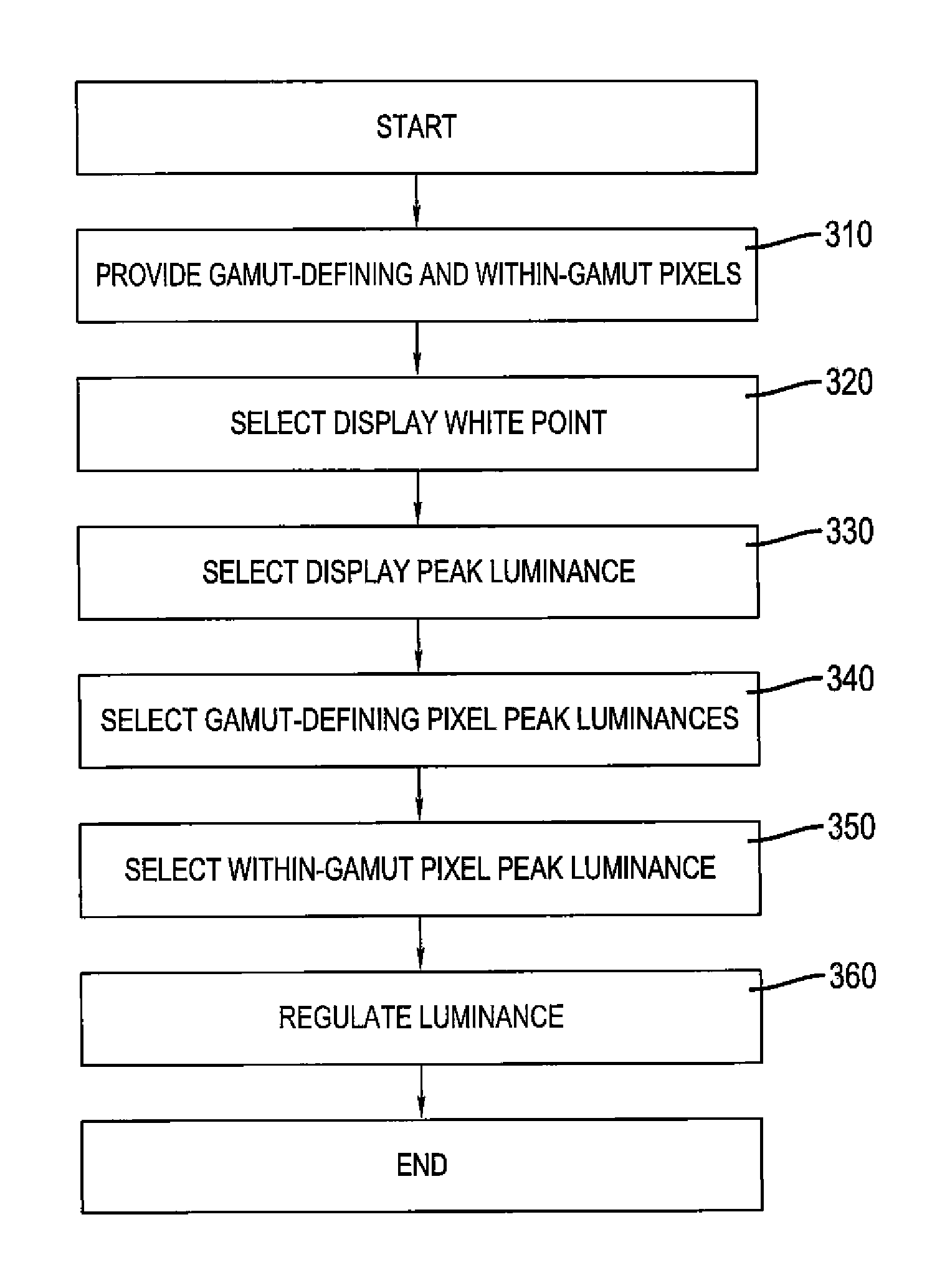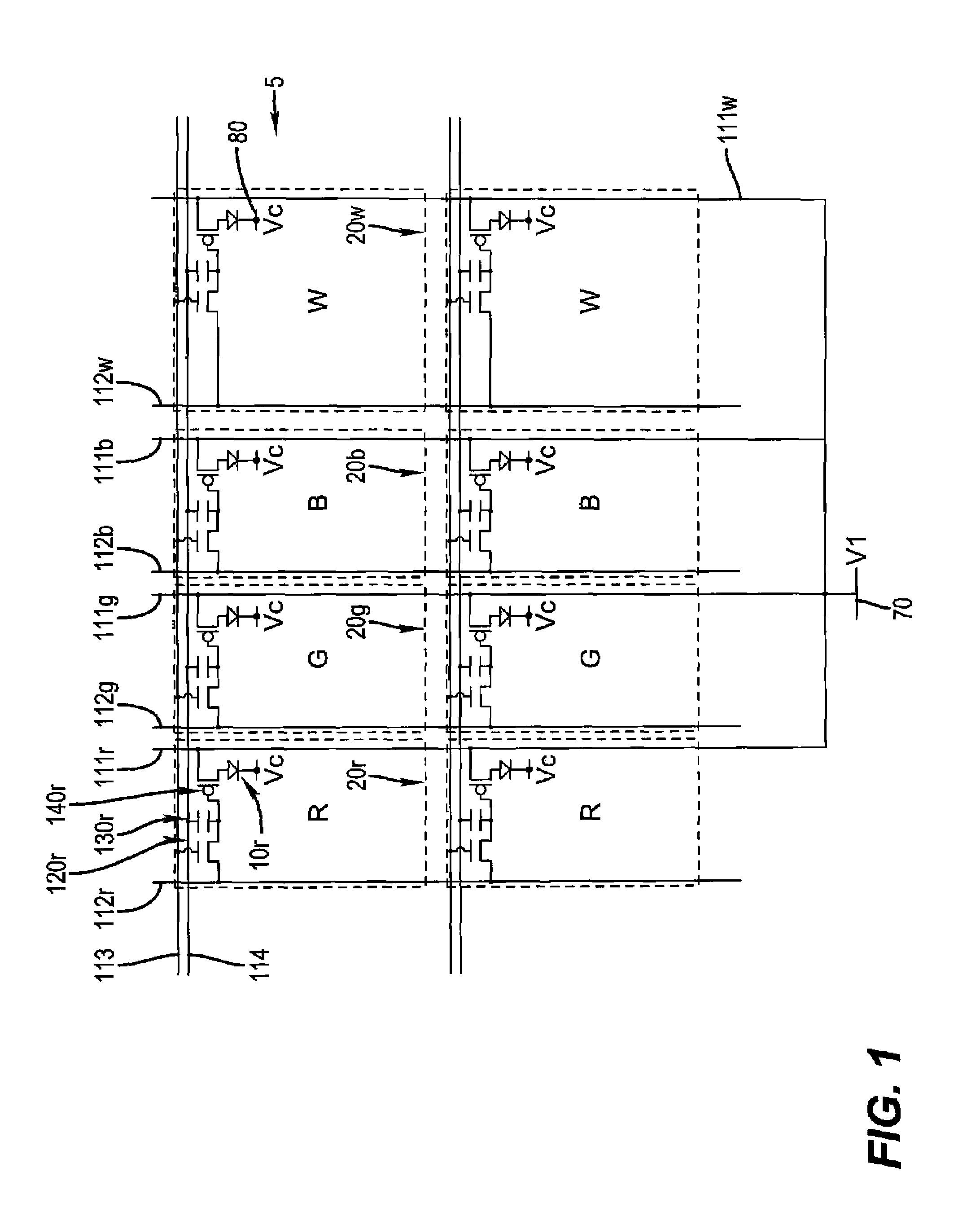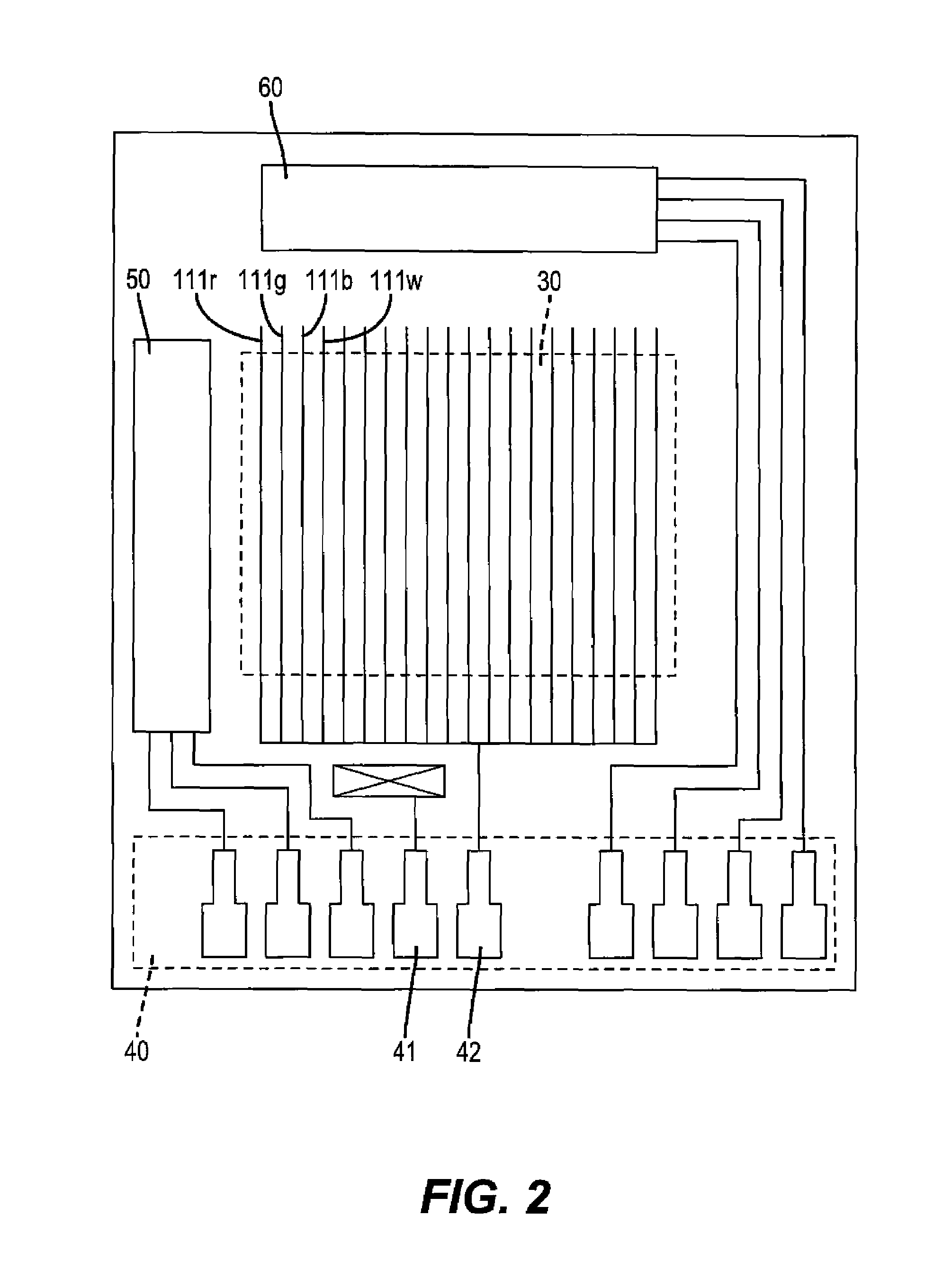OLED display with improved power performance
a technology of oled display and power performance, which is applied in the direction of electrical equipment, semiconductor devices, instruments, etc., can solve the problems of poor power efficiency, colored pixels often require different maximum voltage levels, and poor power efficiency, so as to reduce the overall power consumption of the device, and improve the life of the device
- Summary
- Abstract
- Description
- Claims
- Application Information
AI Technical Summary
Benefits of technology
Problems solved by technology
Method used
Image
Examples
Embodiment Construction
[0029]The term “OLED display” or “organic light-emitting display” is used in its art-recognized meaning of a display device comprising organic light-emitting diodes (OLED) as pixels. A color OLED display emits light of at least one color. The term “multicolor” is employed to describe a display panel that is capable of emitting light of different spectral power distributions in different areas. In particular, it is employed to describe a display panel that is capable of displaying images of different colors. These areas are not necessarily contiguous. The term “full color” is employed to describe multicolor display panels that are capable of emitting different selective spectral power distributions and modulating and mixing these emissions. Various mixtures of the multicolor pixels therefore provide a viewer with the impression of a large combination of hues. In general, red, green, and blue colors constitute three primary colors from which many other colors can be generated by appro...
PUM
 Login to View More
Login to View More Abstract
Description
Claims
Application Information
 Login to View More
Login to View More - R&D
- Intellectual Property
- Life Sciences
- Materials
- Tech Scout
- Unparalleled Data Quality
- Higher Quality Content
- 60% Fewer Hallucinations
Browse by: Latest US Patents, China's latest patents, Technical Efficacy Thesaurus, Application Domain, Technology Topic, Popular Technical Reports.
© 2025 PatSnap. All rights reserved.Legal|Privacy policy|Modern Slavery Act Transparency Statement|Sitemap|About US| Contact US: help@patsnap.com



